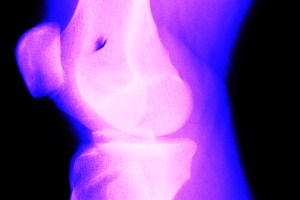








 Many people experience a popping or cracking noise in their knees as they squat down or bend their knees, and this seems to happen with increasing regularity as we age. The medical term for this condition is called crepitus. It is a very normal phenomenon and, so long as it is painless, there is nothing to be overly concerned about. Whether young or old, cracking and popping of the knees is a common occurrence.
Many people experience a popping or cracking noise in their knees as they squat down or bend their knees, and this seems to happen with increasing regularity as we age. The medical term for this condition is called crepitus. It is a very normal phenomenon and, so long as it is painless, there is nothing to be overly concerned about. Whether young or old, cracking and popping of the knees is a common occurrence.
Crepitus can be caused by many things, and scientists are still not completely certain why it happens. One of the reasons for the popping sound may be that the patella is slightly out of alignment and is rubbing against the front of the femur or the adjacent soft tissue. Another condition called cavitation can cause a popping sound when small bubbles of carbon dioxide, which are normally suspended in the synovial fluid that lubricates the knee joint, form a larger bubble and make a popping sound as the knee is bent or twisted (think bubble wrap). Lax ligaments have been associated with an increase in cavitation. Changes in altitude or barometric pressure can often exacerbate the popping sound, such as on plane flights or when there is a change in the weather.
However, if the cracking or popping noise is accompanied by pain on a regular basis, or the knee catches or locks up, then you may have some cause for concern. Pain, sometimes accompanied by a grinding sensation, may be an indication that there is tissue damage to the articulating surfaces of the joint, such as tear to the meniscus. The cartilage behind the kneecap can fray, leading to the pain and popping sound of patellofemoral pain syndrome, which is generally caused by an overuse and misalignment of the hips, knees and ankles.
Swelling and/or stiffness may be indications of early arthritis, bursitis, gout or tendinitis. To be sure you do not damage the joint further, which may require surgery to correct, it is wise to consult with your physician or chiropractor to stop any further damage before it starts.
Your chiropractor can help to realign any joints that are misaligned, which may be contributing to the problem, in addition to suggesting specific stretching and strengthening exercises that you can do at home to support the muscles, tendons and ligaments surrounding the knee. Weak quadriceps is one of the foremost causes of knee pain, so exercises to strengthen this area may be a good idea.